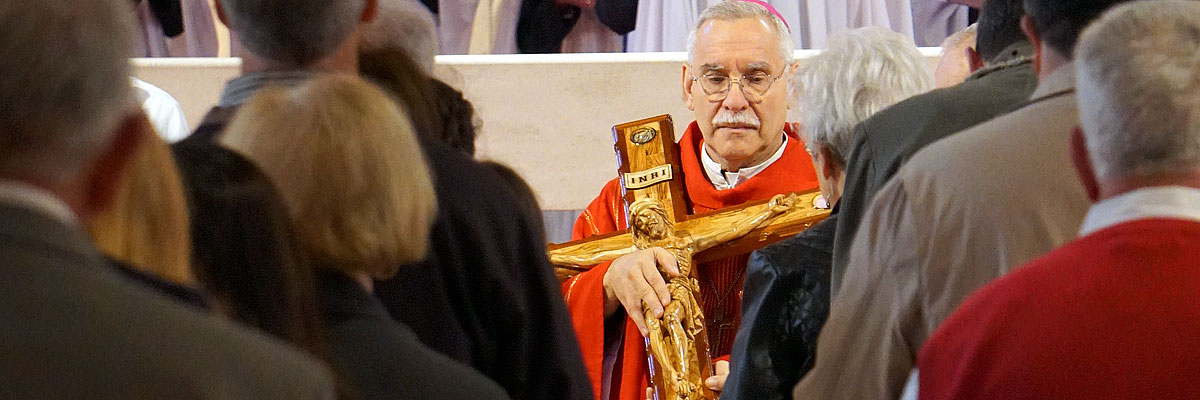Official Website of the
Catholic Diocese of Little Rock
Practicing our faith is something to do every day, not just on Sundays
Published: December 15, 2007
By Judy Hoelzeman
The Second Vatican Council’s “Dogmatic Constitution on the Church” uses the ancient term “domestic church” (ecclesia domestica) to describe the family. “The parents, by word and example,” the document says, “are the first heralds of the faith with regard to their children.” (Lumen Gentium, 11) Since Vatican II, we have often heard the phrase “domestic church” to describe the Christian home. Advent seems an excellent time to examine our homes to see how closely they resemble a “church” of any kind. But how do we do that? It strikes me that the Eucharist we celebrate together every Sunday is an excellent model for what should be happening in the domestic churches of our homes. In so many ways, the Mass shows us how to live as family, whether we find ourselves in a traditional family setting or not. For example, at Mass, we hear the word of God proclaimed. That sacred word contains encouragement, teachings, correction, consolation and above all, reassurance of God’s love. In that word, we find the real focus and motivation for all that we do. Do our families hear the Bible read aloud at home? Have the teachings and life examples of Jesus become a basis for decision making and behavior choices? Think of what we see at Mass. We see both friends and strangers, all members of one religious belief. We see stories of that faith — most prominently in the crucifix — but also in statues of Mary and the saints. We see those stories depicted on stained glass windows. What about at home? Do we see our Christian heritage depicted anywhere? What do we say at Mass? In the penitential rite, we say “Lord have mercy” and ask for forgiveness. We recite the creed, stating our essential beliefs in Jesus Christ as savior, and in the everlasting life he has promised us. At the prayer of the faithful, we reach out beyond ourselves to pray for the whole world. All through the Mass we praise and thank God. Every time we say “amen” we give our assent to all that is transpiring. Now think about conversation at home. Do we offer apologies and ask each other for forgiveness? Do we discuss our priorities and values? Do we evaluate where our time and money are going? Do we remind ourselves that we are called to reach out beyond our own family to make a difference in the world? Do we have set times or rituals where we can praise and thank God? Finally, what do we do at Mass? We share a meal in peace as members of one body, bringing to the altar everything we are — both successes and failures. When the bread we break together is transformed into Christ’s body, our lives are transformed as well and we are filled with Christ’s strength. What about at home? Do we share meals together? Are those meals a celebration of our “belonging” to a family? Do we feel comfortable talking about what went on during the day? Are family meals happy times where we can draw strength from each other? Vatican II also uses the phrase “source and summit of our lives” to describe the Eucharist. If we can really embrace the Sunday Eucharist as a model for life at home, we will discover more deeply what we are called to do Monday through Saturday as followers of Christ. Judy Hoelzeman is a member of St. Edward Parish in Little Rock.









